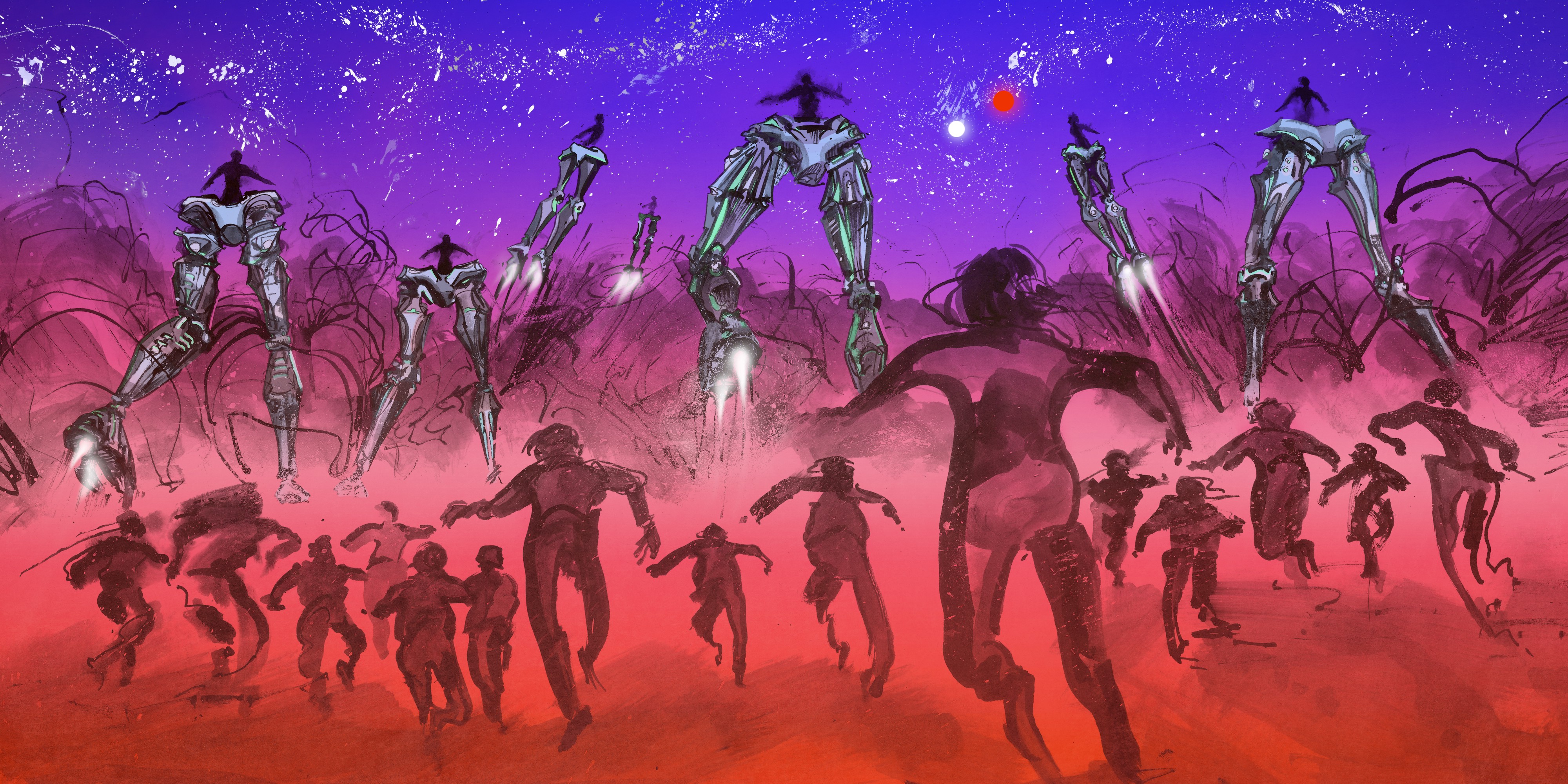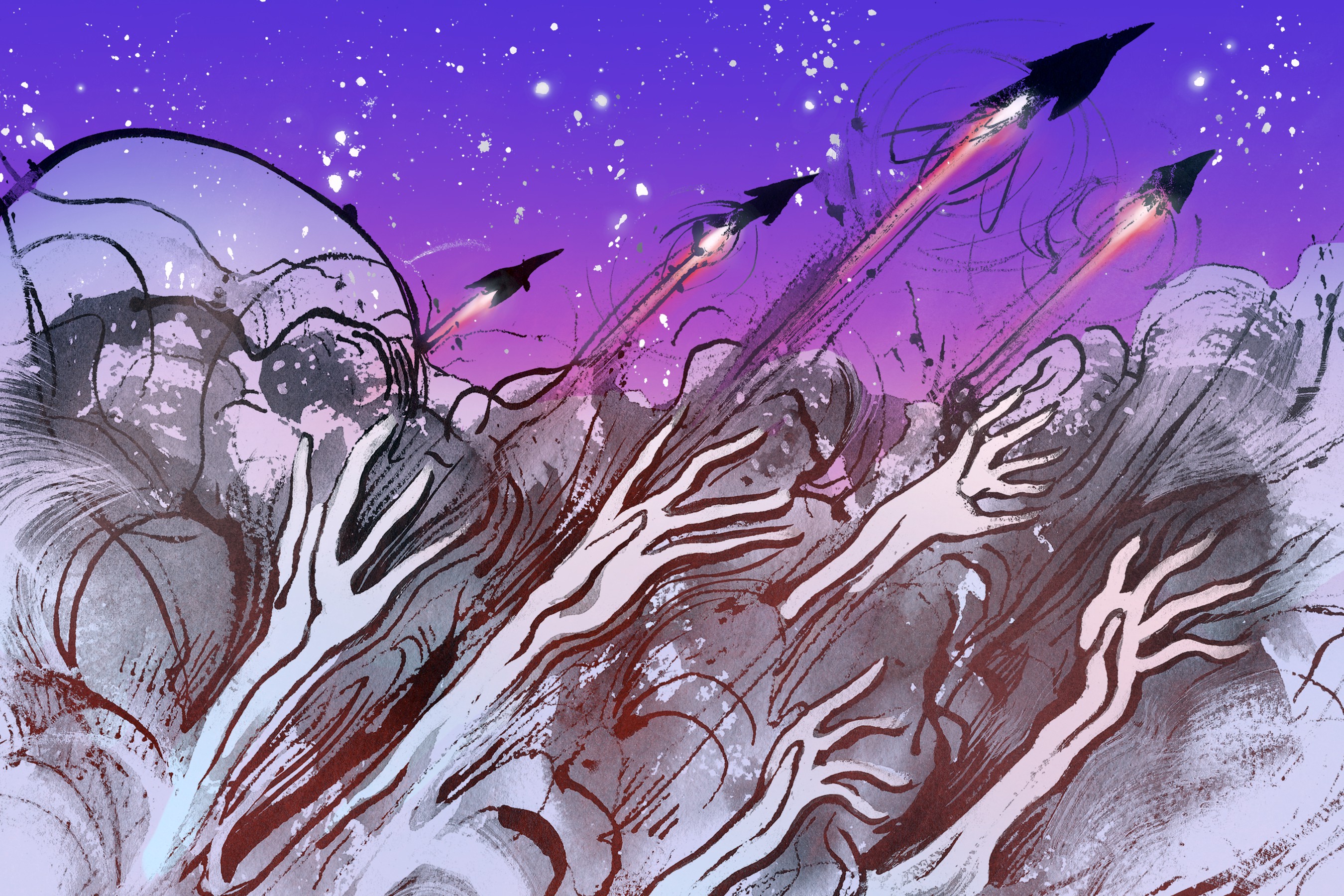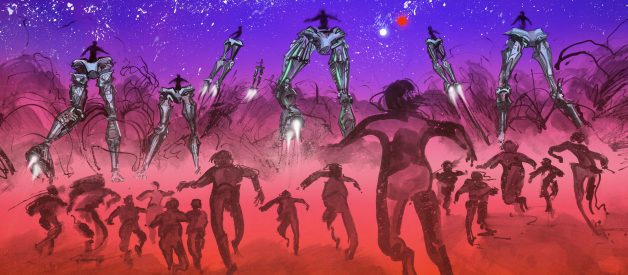Listen to this story
–:–
–:–
FUTURE HUMAN
The wealthy are plotting to leave us behind
 Illustrations: Matt Huynh
Illustrations: Matt Huynh

This ?out of sight, out of mind? externalization of poverty and poison doesn?t go away just because we?ve covered our eyes with VR goggles and immersed ourselves in an alternate reality. If anything, the longer we ignore the social, economic, and environmental repercussions, the more of a problem they become. This, in turn, motivates even more withdrawal, more isolationism and apocalyptic fantasy ? and more desperately concocted technologies and business plans. The cycle feeds itself.
The more committed we are to this view of the world, the more we come to see human beings as the problem and technology as the solution. The very essence of what it means to be human is treated less as a feature than bug. No matter their embedded biases, technologies are declared neutral. Any bad behaviors they induce in us are just a reflection of our own corrupted core. It?s as if some innate human savagery is to blame for our troubles. Just as the inefficiency of a local taxi market can be ?solved? with an app that bankrupts human drivers, the vexing inconsistencies of the human psyche can be corrected with a digital or genetic upgrade.
Ultimately, according to the technosolutionist orthodoxy, the human future climaxes by uploading our consciousness to a computer or, perhaps better, accepting that technology itself is our evolutionary successor. Like members of a gnostic cult, we long to enter the next transcendent phase of our development, shedding our bodies and leaving them behind, along with our sins and troubles.
Our movies and television shows play out these fantasies for us. Zombie shows depict a post-apocalypse where people are no better than the undead ? and seem to know it. Worse, these shows invite viewers to imagine the future as a zero-sum battle between the remaining humans, where one group?s survival is dependent on another one?s demise. Even Westworld ? based on a science-fiction novel where robots run amok ? ended its second season with the ultimate reveal: Human beings are simpler and more predictable than the artificial intelligences we create. The robots learn that each of us can be reduced to just a few lines of code, and that we?re incapable of making any willful choices. Heck, even the robots in that show want to escape the confines of their bodies and spend their rest of their lives in a computer simulation.
The very essence of what it means to be human is treated less as a feature than bug.
The mental gymnastics required for such a profound role reversal between humans and machines all depend on the underlying assumption that humans suck. Let?s either change them or get away from them, forever.
Thus, we get tech billionaires launching electric cars into space ? as if this symbolizes something more than one billionaire?s capacity for corporate promotion. And if a few people do reach escape velocity and somehow survive in a bubble on Mars ? despite our inability to maintain such a bubble even here on Earth in either of two multibillion-dollar Biosphere trials ? the result will be less a continuation of the human diaspora than a lifeboat for the elite.
 When the hedge funders asked me the best way to maintain authority over their security forces after ?the event,? I suggested that their best bet would be to treat those people really well, right now. They should be engaging with their security staffs as if they were members of their own family. And the more they can expand this ethos of inclusivity to the rest of their business practices, supply chain management, sustainability efforts, and wealth distribution, the less chance there will be of an ?event? in the first place. All this technological wizardry could be applied toward less romantic but entirely more collective interests right now.
When the hedge funders asked me the best way to maintain authority over their security forces after ?the event,? I suggested that their best bet would be to treat those people really well, right now. They should be engaging with their security staffs as if they were members of their own family. And the more they can expand this ethos of inclusivity to the rest of their business practices, supply chain management, sustainability efforts, and wealth distribution, the less chance there will be of an ?event? in the first place. All this technological wizardry could be applied toward less romantic but entirely more collective interests right now.
They were amused by my optimism, but they didn?t really buy it. They were not interested in how to avoid a calamity; they?re convinced we are too far gone. For all their wealth and power, they don?t believe they can affect the future. They are simply accepting the darkest of all scenarios and then bringing whatever money and technology they can employ to insulate themselves ? especially if they can?t get a seat on the rocket to Mars.
Luckily, those of us without the funding to consider disowning our own humanity have much better options available to us. We don?t have to use technology in such antisocial, atomizing ways. We can become the individual consumers and profiles that our devices and platforms want us to be, or we can remember that the truly evolved human doesn?t go it alone.
Being human is not about individual survival or escape. It?s a team sport. Whatever future humans have, it will be together.
Douglas Rushkoff is the author of the upcoming book Team Human (W.W. Norton, January 2019) and host of the TeamHuman.fm podcast.
Editor?s note: In September 2020, Douglas published a follow-up to this story that examines the fallout from the Covid-19 pandemic.


